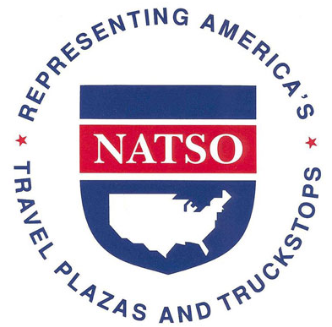Fuel Retailers, Truckstops Oppose INVEST in America Act Provisions That Undermine Investment in Electric Vehicle Charging
It is imperative that federal dollars for EV charging ensures that investor-owned utilities are unable to increase the electricity rates of all their customers – regardless of income – to underwrite investments in EV charging equipment
NATSO, representing the nation’s truckstops and travel plazas; NACS, the National Association of Convenience Stores; and SIGMA: America’s Leading Fuel Marketers today announced their opposition to H.R. 3684, the INVEST in America Act, the five-year surface transportation reauthorization bill passed by the U.S. House of Representatives.
“NATSO is disappointed that we must reject a federal highway bill for the second time because it contains the same harmful provisions that will discourage the private sector from making investments in electric vehicle charging infrastructure,” said NATSO President and CEO Lisa Mullings. “NATSO wants to work with lawmakers to expand the market’s transition to alternative fuels, including EV charging. With a few key improvements to these provisions, NATSO and the entire retail fuel industry would otherwise be able to support this important legislation.”
“NACS supports infrastructure investments that will leverage private funds and lead to improvements throughout the nation,” said NACS President and CEO Henry Armour. “This bill does the opposite and will depress overall investment in critical new technologies like electric vehicle charging. The policies related to electric vehicle charging put forth in this legislation undermine the necessary business case for EV charging infrastructure, making it more difficult for the private sector to make such investments.”
The groups all support increased investment in infrastructure, including alternatives to traditional motor fuel such as electric vehicle charging, hydrogen, and natural gas fueling. Public policy should support and incentivize private investment in these and other alternatives, but the INVEST Act falls short in this regard.
While the INVEST Act includes funding for electric vehicle (EV) charging infrastructure, those provisions are designed in a way that creates impediments to private sector investment in EV charging.
Specifically, the legislation includes provisions that would encourage government-sanctioned monopolies by placing EV charging stations at Interstate rest areas. Such commercial services at rest areas have been shown to reduce private investment in those services at interstate exits resulting in less, not more, of those offerings for motorists. The associations applaud the leadership of Rep. Rick Larsen (D-WA), a senior member of the House Transportation and Infrastructure Committee, along with a bipartisan group of lawmakers, in trying to offer an amendment to H.R. 3684 to modify this provision. Unfortunately, the amendment was not allowed to be considered by the full House of Representatives.
“We are extraordinarily grateful to Congressman Larsen and his staff for their leadership throughout this process,” said David Fialkov, NATSO’s Executive Vice President of Government Affairs. “Congressman Larsen understands that the existing nationwide network of fuel retailing locations represents the best opportunity to quickly and efficiently bring charging options to market. If Congressman Larsen’s amendment came to a vote on the House floor, it would have passed. It’s unfortunate that House leaders chose not to allow this bipartisan compromise to see the light of day.”
The associations voiced strong objections to last-minute provisions added by the Energy and Commerce Committee that will award rebates to public utilities that also utilize rate payer dollars to invest in electric vehicle charging stations, effectively allowing them to “double dip.” While rebates and other funding programs have a role to play in furthering EV charging investments, the structure of this program will undercut private sector investment in EV charging while saddling low-income electricity ratepayers with the costs of electric vehicle charging infrastructure.
H.R. 3684 does not include sufficient guardrails to facilitate an open and competitive market for EV charging and fails to protect and provide fairness to all electricity consumers.
It is imperative that federal dollars for EV charging ensures that investor-owned utilities are unable to increase the electricity rates of all their customers – regardless of income – to underwrite investments in EV charging equipment. That unfair funding method combined with federal funds that allow double-dipping of funding for the same infrastructure and the punitive demand charges that utilities impose on private sector operators of EV charging statements make it impossible for the private sector to successfully invest in charging technology.
The three trade groups represent approximately 90 percent of retail sales of motor fuel in the United States.
Category: Driver Stuff, Electric Vehicles, Featured, Fuel & Oil, General Update, Green, News











